What Your Skin Reveals About Your Health:The Importance of Skin Analysis
In this article, we’ll explore how your skin can provide valuable insights into your health, the benefits of skin analysis, and how adopting a holistic approach can improve both your skin and overall well-being.
1.Does Your Skin Tell You About Your Health?
Without question — your skin often acts as a messenger, offering visible signals of what's happening internally. As the most extensive and outwardly expressive organ of the body, it frequently reveals disruptions in internal balance — sometimes before any lab test does. Whether through fluctuations in moisture, unexpected changes in tone, or stubborn breakouts, your skin can reflect imbalances in hydration, hormones, liver function, and even immune response. When combined with modern diagnostic tools like skin analysis equipment, these external indicators can provide a deeper understanding of your skin and your overall health.
Below are several examples of how skin changes can point to underlying systemic issues:
1.1 Dry, Rough, or Tight Skin: A Hydration Warning
When your skin begins to feel unusually parched or coarse, it may be more than just a reaction to dry air or skincare products. This condition could signal internal dehydration, or in some cases, point to impaired kidney function or poor electrolyte regulation. Inadequate intake of essential nutrients — particularly omega-3 fatty acids — or hormonal sluggishness such as hypothyroidism may also play a role. While external factors can contribute, persistent dryness warrants a closer look at what your body may be lacking from the inside out.
1.2 Breakouts and Hormone Disruptions
Frequent blemishes, especially when concentrated around hormonal zones like the chin or jawline, are often a reflection of what’s happening hormonally. Spikes in androgen levels — triggered by stress, sleep disorders, or endocrine conditions like PCOS — tend to drive sebum overproduction, leading to inflammation and clogged pores. Unlike occasional pimples, hormonally influenced acne typically follows a cycle and doesn’t respond well to over-the-counter remedies alone. It often requires a broader evaluation of internal hormonal rhythms and stress levels.
1.3 Changes in Skin Tone: Clues to Nutritional or Organ Health
Unusual shifts in skin coloration can serve as subtle indicators of deeper organ stress. A yellowish complexion might be your body’s way of expressing liver burden or bilirubin buildup, common in early-stage jaundice. On the other hand, a pale or sallow appearance could be related to iron-deficiency anemia or vitamin B12 and folate depletion. These changes, while easy to dismiss, often coincide with fatigue, dizziness, or cold hands and feet — all suggesting that something more than surface-level skincare is needed.
1.4 Unexplained Itching or Inflammation: Immune and Gut Signals
Itching, rashes, or redness that occur without obvious contact irritants can often be traced back to internal inflammatory pathways or immune hypersensitivity. Autoimmune disorders such as lupus, eczema, or psoriasis frequently begin with skin flare-ups, sometimes before any other symptoms arise. Food intolerances, gut microbiome imbalance, and prolonged stress can all influence these reactions. If your skin shows persistent irritation with no clear external cause, it may be pointing toward a deeper systemic imbalance — one that calls for more than topical relief.
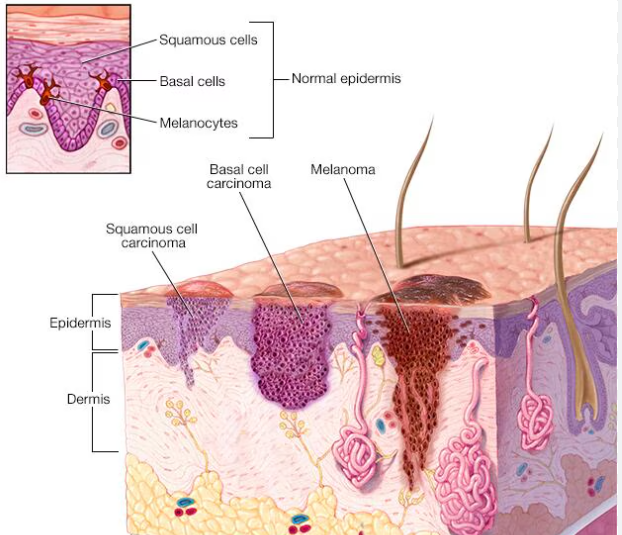
2.Is the Skin a Reflection of Your Inner Health?
Absolutely. Your skin often serves as a window into your internal health, revealing early signs of imbalances within the body. From fluctuations in hormones and gut health to the impacts of stress and inflammation, your skin is quick to reflect these internal disturbances. Conditions like acne, rosacea, and premature aging often point to deeper systemic issues. By recognizing the connection between skin appearance and overall health, you can adopt a more holistic approach to both your skincare routine and general well-being, tackling root causes instead of just surface symptoms.
2.1 The Gut-Skin Connection
The gut-skin axis refers to the established link between the health of your digestive system and the condition of your skin. When the gut microbiome is disrupted — due to factors such as poor nutrition, stress, antibiotics, or illness — it can cause widespread inflammation that is often visible on the skin.
For instance:
Acne, rosacea, and eczema have all been associated with an imbalance in gut bacteria, also known as dysbiosis.
A compromised gut lining, often referred to as “leaky gut,” can result in an overactive immune response, leading to skin irritation, rashes, or heightened sensitivity.
Taking steps to support gut health — through a diet rich in probiotics, fiber, and digestive aids — can lead to significant improvements in skin clarity and overall appearance. By addressing gut imbalances, you can unlock the secret to healthier, more radiant skin.
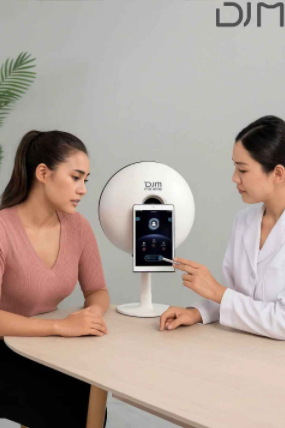
2.2 Stress, Hormones, and Skin Health
Stress triggers the release of cortisol, a hormone that disrupts your skin’s natural balance. When cortisol levels spike, they interfere with the skin’s ability to regulate oil production and maintain its protective barrier, resulting in:
Breakouts, particularly in oil-prone zones like the forehead, chin, and nose.
Increased redness and sensitivity, which can cause the skin to look blotchy or inflamed.
Slower skin healing and a higher likelihood of prolonged flare-ups, as cortisol impedes the skin’s natural recovery process.
Equally important is sleep, which plays a crucial role in skin health. During deep, restful sleep, the body produces melatonin and growth hormones that facilitate cell repair and regeneration. Insufficient sleep disrupts this process, leading to dull, tired-looking skin that’s more susceptible to irritation and premature aging. Managing stress levels and prioritizing quality sleep are key to maintaining vibrant, youthful skin.
3.Why Skin Analysis Is More Important Than You Think
3.1 Early Detection of Health Issues
Skin analysis equipments provide a valuable, non-invasive method for spotting early signs of health problems before they escalate. By capturing subtle visual markers using high-precision imaging, these devices can offer insights into your body’s overall condition. For example, dehydration lines and lackluster skin may point to chronic dehydration or kidney strain. Similarly, sudden changes in pigmentation could indicate hormonal imbalances, such as those linked to thyroid dysfunction, insulin resistance, or contraceptive use. Early detection of these issues through skin analysis allows for timely intervention, potentially preventing more serious health complications from developing.
To learn more about how AI technology enhances skin analysis for better treatment outcomes, check out our detailed blog on the Benefits of AI Skin Analysis Equipment for Professional Skincare.
3.2 Tailored Skincare Recommendations
Many people rely on trial and error when selecting skincare products, often using items that don’t align with their skin's true needs. Skin analysis eliminates this uncertainty by offering a thorough, precise assessment of your skin's condition. This allows professionals — or even advanced AI-powered tools — to recommend a customized skincare regimen tailored to your unique skin type, concerns, and environmental factors.
Moreover, skin analysis can identify hidden issues, such as UV damage, blocked pores, or incipient inflammation, often before they become visible. This data-driven approach streamlines your skincare routine, maximizing results while saving you time and money, whether you're a novice or a skincare pro.
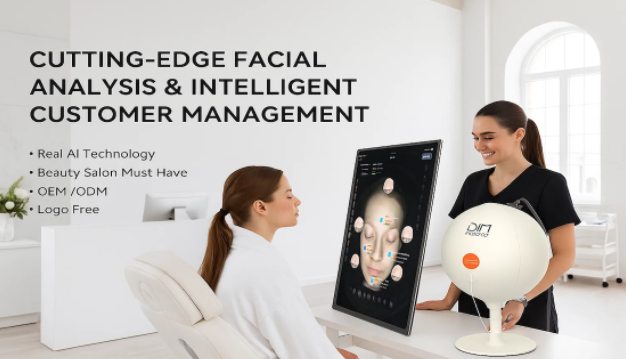
For those seeking more advanced skin analysis, the iMoreMe 2Pro is the perfect tool. Offering Enhanced Professional Skin Analysis, it targets 9 key skin problems and processes 60 trillion operations per second for unmatched precision. Its 23.8-inch HD display provides clear, detailed insights, enabling professionals and individuals alike to make well-informed, tailored skincare decisions, taking your routine to the next level.
3.3 Preventive Health with Skin Analysis Equipment
Skin analysis equipment is not just about improving appearance; it plays a crucial role in preventive health care. By regularly monitoring key skin characteristics — including hydration, elasticity, and pigmentation — you can catch early signs of stress, hormonal fluctuations, or other underlying health issues. Ongoing skin assessments also provide insights into the effectiveness of supplements, medications, or skincare products, offering real-time feedback on their impact. Keeping a consistent health record through regular skin analysis allows for a deeper understanding of your skin’s long-term health. Much like routine blood tests or check-ups, skin analysis empowers you to take proactive control of your skin’s health, and by extension, your overall well-being.
Discover more:
https://www.djmimoreme.com/resources/blog/how-often-should-a-skin-analysis-be-performed.html
Conclusion
In conclusion, your skin offers far more than just a reflection of your appearance — it provides a window into your body’s health. By paying attention to the signals your skin sends, and incorporating advanced skin analysis into your wellness routine, you can detect underlying issues early, receive personalized skincare recommendations, and take a proactive approach to both your skin and overall health.
Table of Contents
Related information
How can we help you?
Have specific questions or requests? Fill out our inquiry form, and our dedicated team will get back to you promptly. Your inquiries are important to us, and we are committed to providing comprehensive and personalized responses tailored to your needs.


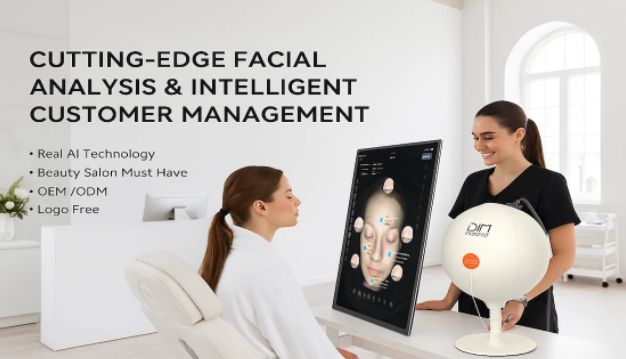
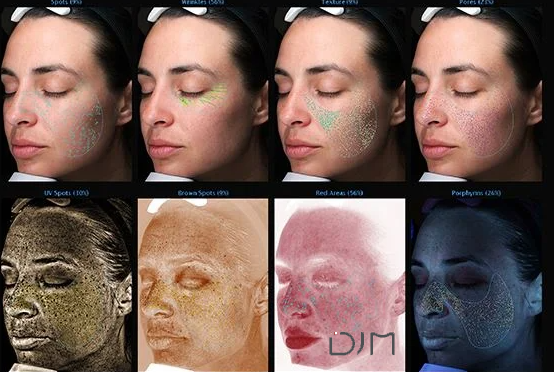
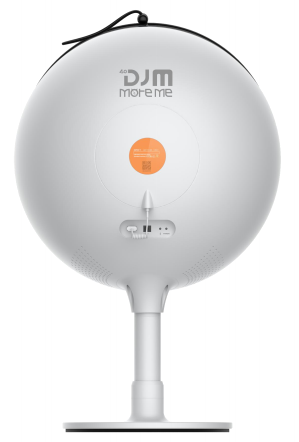
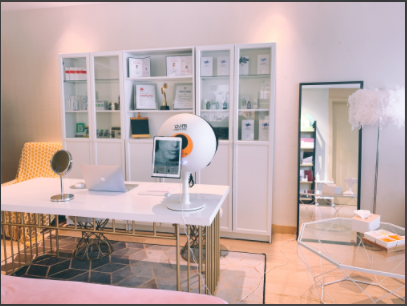
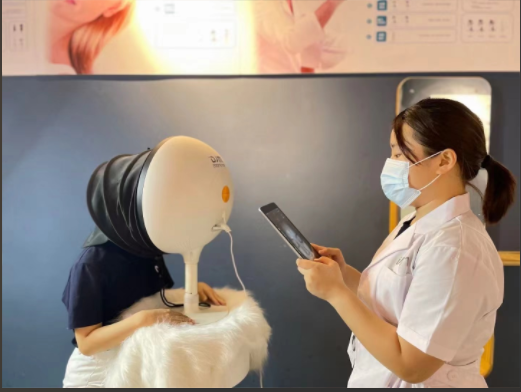
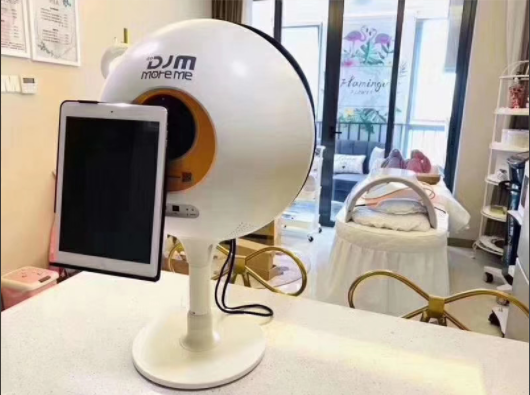
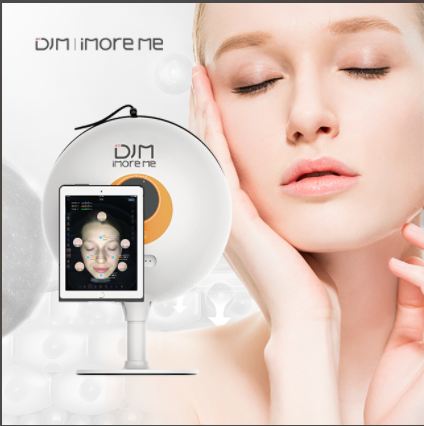
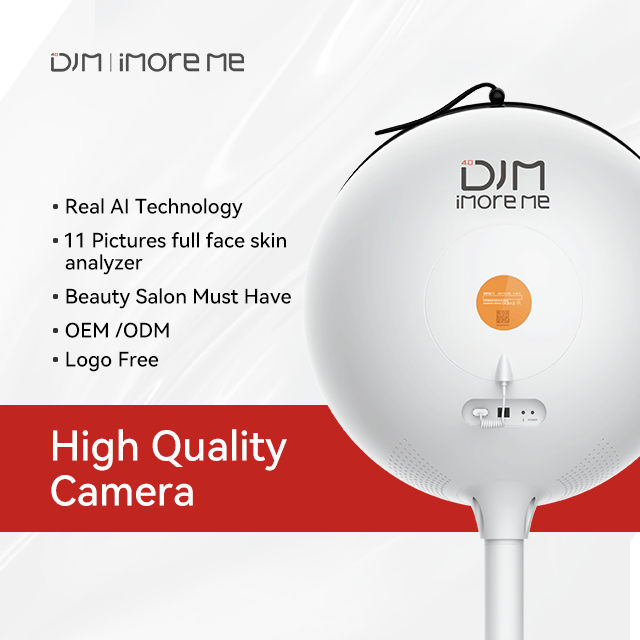


 Reach out to us today!Whether you are preparing to start your own
business in the beauty industry, are ready to upgrade your
equipment, or are just interested in our products,Contact us
today, and let’s explore how we can partner to achieve your goals
and drive your success to new heights!
Reach out to us today!Whether you are preparing to start your own
business in the beauty industry, are ready to upgrade your
equipment, or are just interested in our products,Contact us
today, and let’s explore how we can partner to achieve your goals
and drive your success to new heights!
